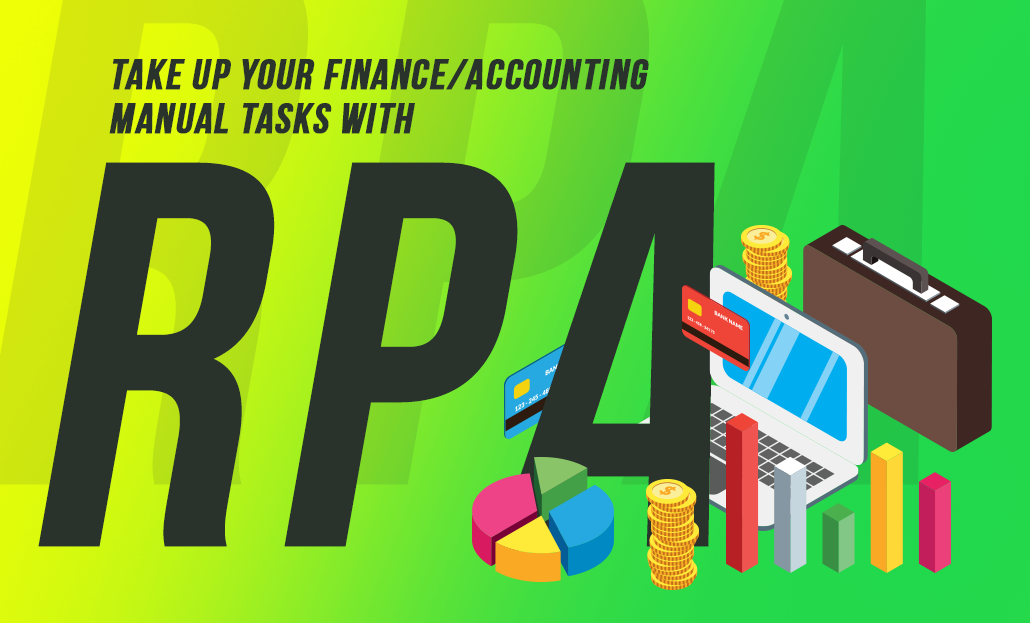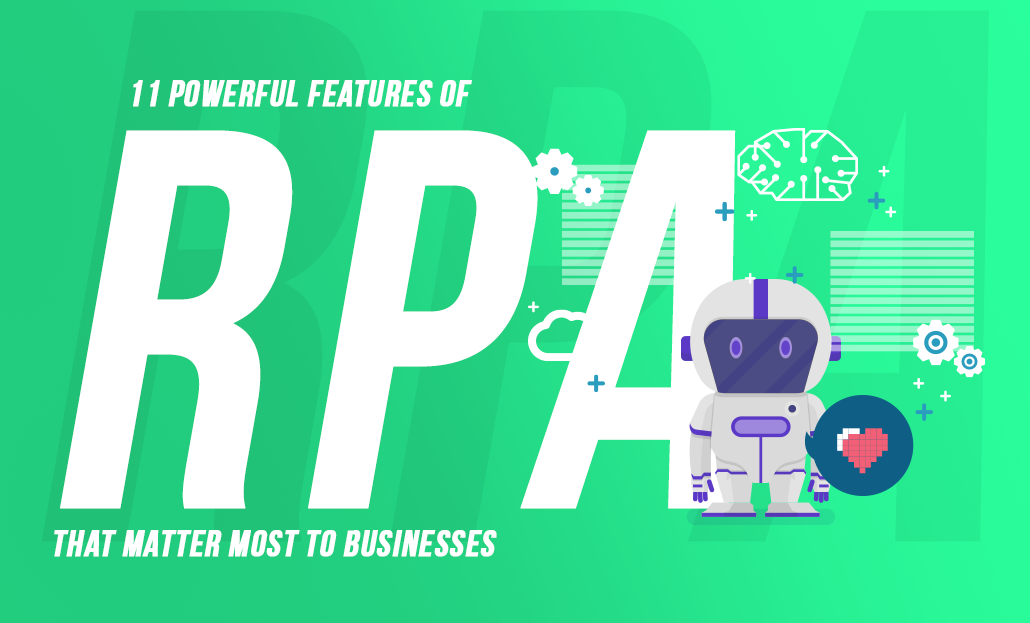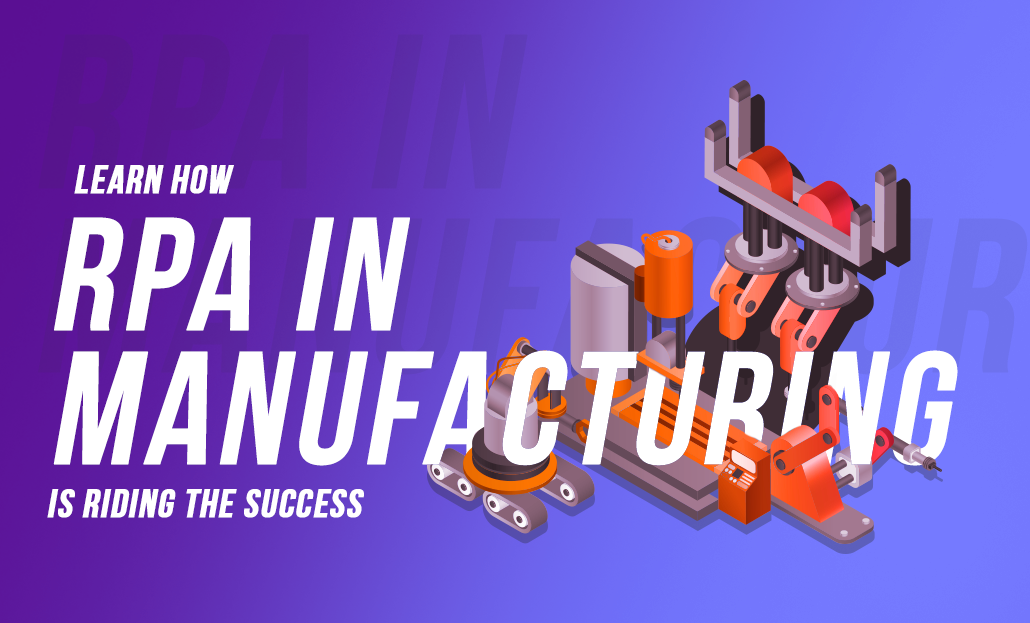Finance/accounting functions, in particular, are experiencing constant pressure to stay in front of the curve and be an efficient business assistant to their enterprises. Additionally, C-level executives are demanding better as well as rapid value and insights from them. As a result, finance and accounting functions can’t afford to be lagging behind by automation concern. It is high time for the finance team to become technologically savvy. Because we are living in the automation age in which robots are not only completing a comprehensive range of mundane works better than humans are but also competent in completing activities that involve cognitive capabilities. Therefore, they should start embracing robotic process automation as it can be involved in sensing emotion, taking tactic judgments, and driving actions that are measured too hard for successful automation. Let us have a deep walk-through on the competence of adopting RPA in the finance and accounting industry.
RPA in Finance and Accounting
RPA is rapidly becoming a trend to extend automation in finance/accounting. According to recent researches, several enterprises accepted that RPA provided a significant influence on shifting the financial processes in order-to-cash, procure-to-pay, and record-to-report to the next level.
Accounting team is an invaluable asset for a business. As the enterprise grows, it is hard to scale the department to meet the rising demand. In addition, the finance and accounting industry include an excess of transactional processes, which are repetitive, mundane, and time-consuming. According to a research of McKinsey, finance includes around 43% of technical potential to be automated.
Robotic automation allows the industry to handle these processes with ease and free up the team members to focus on complex and higher-level tasks. It also reduces another challenge of the workforce called inaccuracy as it leads to substantial losses. The implementation of RPA platform in the finance and accounting companies automates processes like transactional data management, accounting, billings, journal entry processing, adjustments, account receivables, collections, etc., efficiently, seamlessly and with 100% accuracy.
As a result, the completely repetitive data entry tasks, as well as tracking of millions of routine transactions, will not demand considerable effort and time of an employee. Along with that, it also handles financial budgeting, reporting, forecasting, planning, and other treasury tasks.
With all these benefits, most of the finance and accounting enterprises have begun incorporating RPA software. According to the survey of PWC called RPA in financial services today, finance is one of the areas in an industry that gains more benefits with RPA than others:
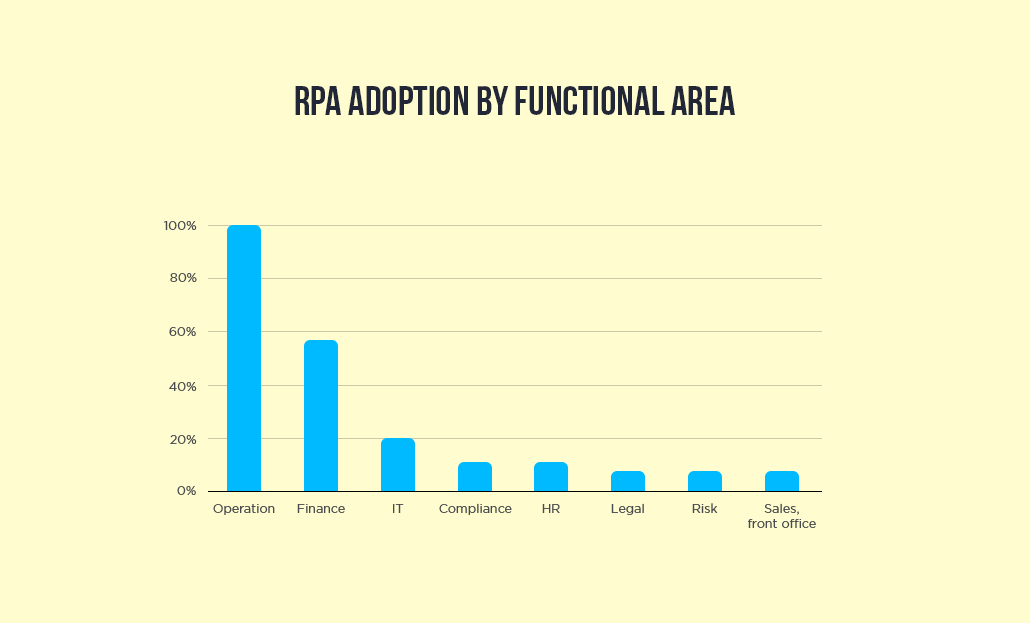
The same survey also highlighted the current implementation stage of RPA in financial firms, depicted below:
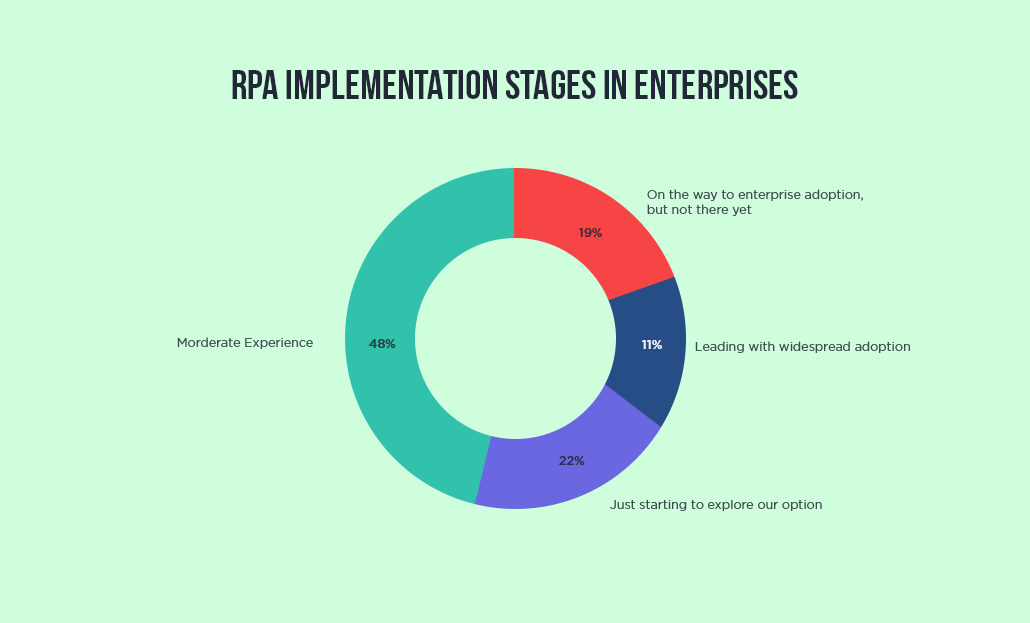
Undoubtedly, several financial companies are hands-on with RPA experience.
Benefits of RPA in Finance and Accounting
As the Chief Finance Officers are searching for ways to enable faster operations as well as increased efficiency in their process, the RPA comes to their rescue. With robotic process automation, finance and accounting sectors can replace human work with bots. As a result, they can free the bandwidth of their workers to focus on more constructive tasks. Let us have a look at the galore benefit of RPA in finance and accounting, including sourcing & procurement, financial risk management, regulatory compliance, and others.
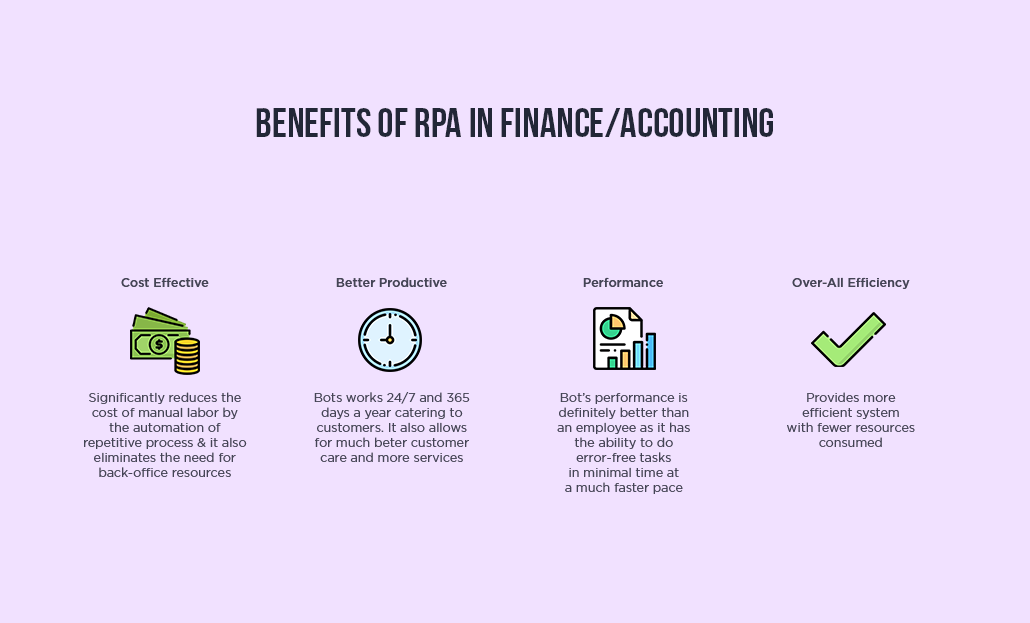
Know more about the benefits of RPA
Let us explore various functions in finance/accounting that can take leverage on RPA.
Journal Entry Automation
A journal entry is one of the labor-intensive work, which takes too much of the time. As there are no validation checks in spreadsheets, the manual handling includes high possibilities of error occurrence. RPA solution reduces the potential risk and ensures accurate end results.
Account Reconciliation
This process checks the account balance of the accounts at certain intervals. This labor-intensive process includes steps like comparing account balance with various systems, verifying statements & reports to examine discrepancies if any and takes actions to correct the same. RPA bots can simplify these laborious works and increase the month end closing process.
Automate the Report Management
Financial report preparation is a well-known tedious process that includes entering everyday revenue into the excel sheet, creating reports as well as sending it out. RPA system can automate the activities like information gathering from the multiple spreadsheets, feeding them into a single system for report generation, and sending them via emails.
Invoice Processing
Companies typically spend 4 to 16 days for invoice processing from receipt to payment approval. The invoice processing is a tedious, time-consuming process and demands a high level of human participation. However, RPA automation effortlessly takes care of these tasks. It can convert the incoming files into PDF format regardless of whether they are structured or unstructured with the help of its Optical Character Recognition feature.
Know more about the features of RPA
An End Card for the End-of-Month Accounting
The end-of-month run of account transaction is a time-consuming process and it swallows considerable hours of an employee. RPA can automate these lengthy processes, thereby reduces the processing time and avoids process errors. As a result, businesses can rapidly experience ROI via increased productivity due to accounts team and experience upturn in employee retention and engagement.
Reshape Global Finance Delivery Processes
The finance delivery processes include several sub-processes like footing, balance sheet recalculations, cross-footing, verification of internal consistency and PY tie outs. The report completion typically comprises manual, repetitive, time-consuming, and complex actions. The adoption of the RPA system that includes NLP (Natural Language Processing) can extract tables in PDF, analyze textual contexts and validate balance sheets & other financial data.
Real-time Use cases of RPA in finance and accounting
With this understanding, let’s move through the section that deals with real-time use cases of the RPA platform implementation in the finance and accounting industries. It is common to see RPA applications in the most process of the finance domain, but the most feasible use cases are credit card management, claim processing, fraud detection, procure to pay, and Account payable & receivable.
Credit Card Management
Leading financial enterprises need to have an efficient card management process, which should deal with issuing a replacement for stolen or lost credit cards, reversing credit card charges, risk assessment and many more. The traditional financial management system was burdensome and time-consuming, demanding FTEs for an average of 2 hours in each case. With robotic automation, businesses can reduce manual works and boost the activities like integrity verification of the cardholder, collection of customer details and submission of details into the various systems for providing new cards. Thereby, the automation reduces the operating costs associated with information gathering and inputting in systems. In addition, it reduces the cost of risk management and customer due diligence.
Claim Processing
In each sector, handling insurance claim processing manually is one of the time-consuming and error-prone processes. The possibilities of errors cause delays, result in more works, engage employees and lead to negative client impressions. With the implementation of the RPA, the possible errors have been removed with increasing accuracy; the verification endures only 2 hours and saves thousands of FTEs hours.
Fraud Detection
Fraud and identity theft are the most significant issues that hurt the financial industry. Embracing RPA solution in banking and other financial institution can ensure better supervision and avoid cyber threats before they become a harm to handle. With the automated notifications and alerts, the significant parties involved can guess the exploit and trigger chain of events to ensure the recovery. Together with predictive analytics and machine learning, RPA platform enables the enterprise to analyze available data as well as previous threats to build a defense mechanism, which can highlight the fraudulent transactions.
Procure to Pay
Financial enterprises find it hard to incorporate an all-inclusive approach to handle the entire procure to pay cycle. Leading corporations typically spend around 253 manual hours per week in entering data, manual intervention, and rectifying cash flow reports. Automating this process with RPA can enable collaboration with finance and procurement and reduce manual hours. The RPA automation can take care of activities like Supplier onboarding, Portal queries, Price comparisons, Contract terms, Market intelligence and much more.
Accounts Payable & Receivable
There has been a notable amount of incredibility considering the lack of structures and consistency in invoices. The implementation of RPA would make a considerable influence in this space. With automated payments, RPA establishes certainty in the accounts payable. In the accounts payable process, RPA takes care of vendor setup & maintenance, automation of workflow processes & approvals, data entry & payment preparations and many more. Similarly, when it comes to account receivable, the functions that can be automated include credit approvals & customer master file maintenance, order processing and many more.
Conclusion
The real-time application of RPA in the finance and accounting industry doesn’t end here at all. Robotic process automation is the next step in automation and the ideal way of the future. The possibilities and benefit of RPA implementation are exciting and sure, it will completely drive the finance/accounting industry to the next level.





